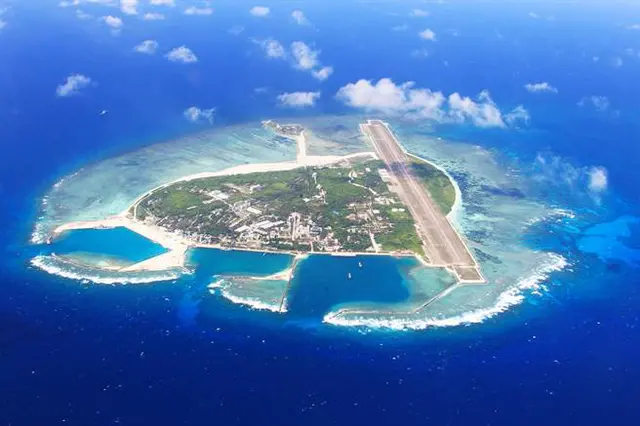The Permanent Court of Arbitration (PCA) said on Friday that it is not a UN organ and only provided registry services to the South China Sea arbitral tribunal.
An ad hoc tribunal, set up at the unilateral request of the former Philippine government, on Tuesday issued an ill-founded award sweepingly sided with Manila, denying China's long-standing historic rights in the South China Sea.
In an email responding to Xinhua's request for comment on the case, Judith Levine, senior legal counsel of the PCA, said the court has served as registry in interstate disputes under Annex VII to the United Nations Convention on the Law of the Sea (UNCLOS), adding that the tribunal should determine its own procedure.
Sovereignty issues, under UNCLOS is beyond the jurisdiction of the arbitral tribunal. China has validly excluded delimitation disputes in a declaration in 2006.
The appointment of arbitrators was conducted according to UNCLOS Annex VII, she said.
Both parties of a dispute are entitled to appoint an arbitrator, she explained. In the South China Sea arbitration, which China reiterated that it would not participate in, the Philippines appointed German arbitrator Rudiger Wolfrum, and the four other arbitrators were appointed by Japan's Shunji Yanai, then president of the Hamburg-based International Tribunal of the Law of the Sea (ITLOS).
Yanai's political leanings rules out the possibility of a fair judgement, as he has helped Japanese Prime Minister Shinzo Abe lift the ban on Japan's collective self-defense right and challenge the post-WWII international order.
The South China Sea arbitral tribunal, constituted on June 21, 2013, appointed the International Bureau of the PCA to serve as registry for the proceedings.
As a registry, the PCA undertook financial management of the case, which involved collecting payment from both parties, and paying fees to arbitrator, experts, technical support, court reporters, among others.
In the South China Sea case, due to China's firm stance of nonparticipation, the Philippines paid shares of both parties, in order for the arbitration to proceed.
According to the "Rules of Procedures" of the tribunal, the functions of the registry also included maintaining an archive of the arbitral proceedings, providing appropriate registry services as directed by the tribunal, publishing information about the arbitration and issuing press releases, and organizing hearings at the Peace Palace, the seat of the PCA.
On the PCA's relationship to the UN, Levine confirmed that although it is housed in the same premises with the ICJ, the PCA is not a UN organ.
"The PCA is an intergovernmental organization that predates the UN and is independent of the UN," she explained. "The PCA was established by the 1899 Convention for the Pacific Settlement of International Disputes. China became a member State of the PCA in 1904."
The PCA has observer status at the UN, and PCA delegations have attend UN General Assembly meetings and UN multilateral treaty negotiations, she added.
There has been a confusion among the public that the award in the case was made by a "UN-backed tribunal," or even "UN tribunal," due to misleading reports by some media.
The International Court of Justice (ICJ), the principal judicial organ of the UN, has issued a notification on its website to clarify that it had nothing to do with the case.
According to the PCA's 2015 annual report, it provides services for the resolution of disputes involving various combinations of states, state entities, intergovernmental organizations, and private parties.
Its International Bureau, or Secretariat, is the unit that provides registry services, ranging from secretarial support to travel arrangements.
(APD)
 简体中文
简体中文

